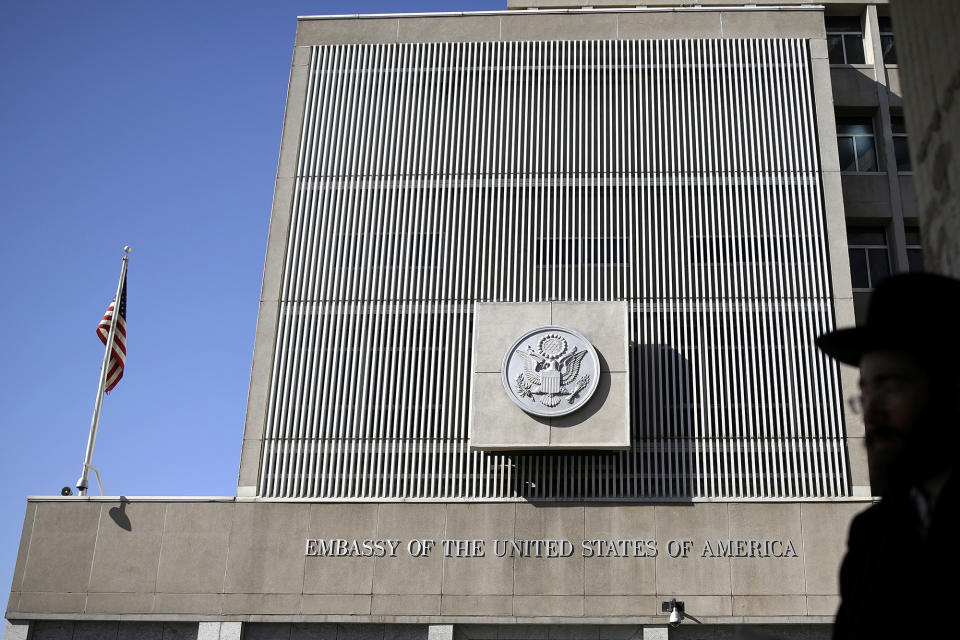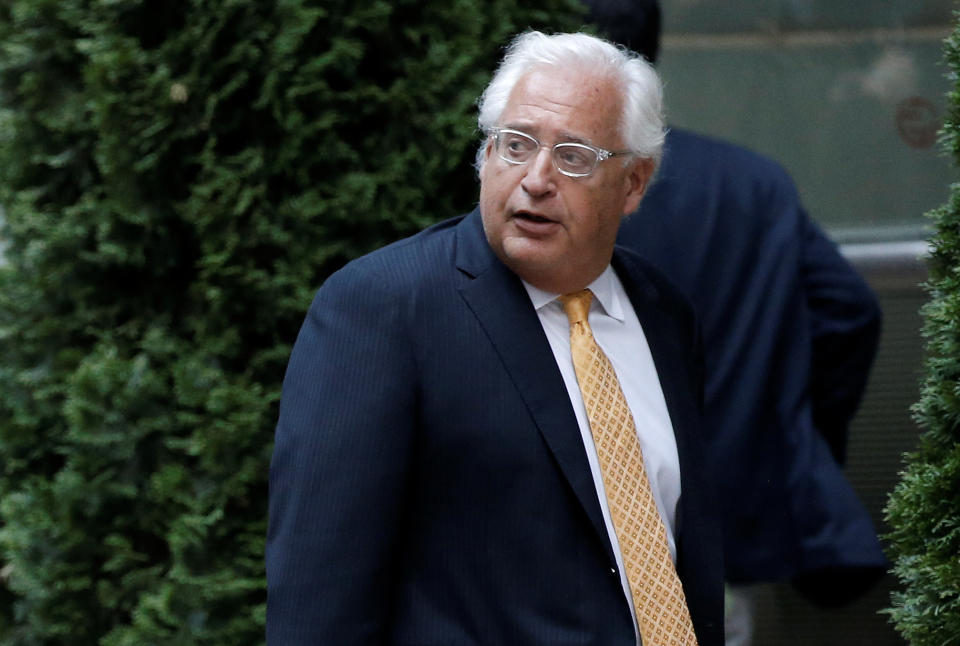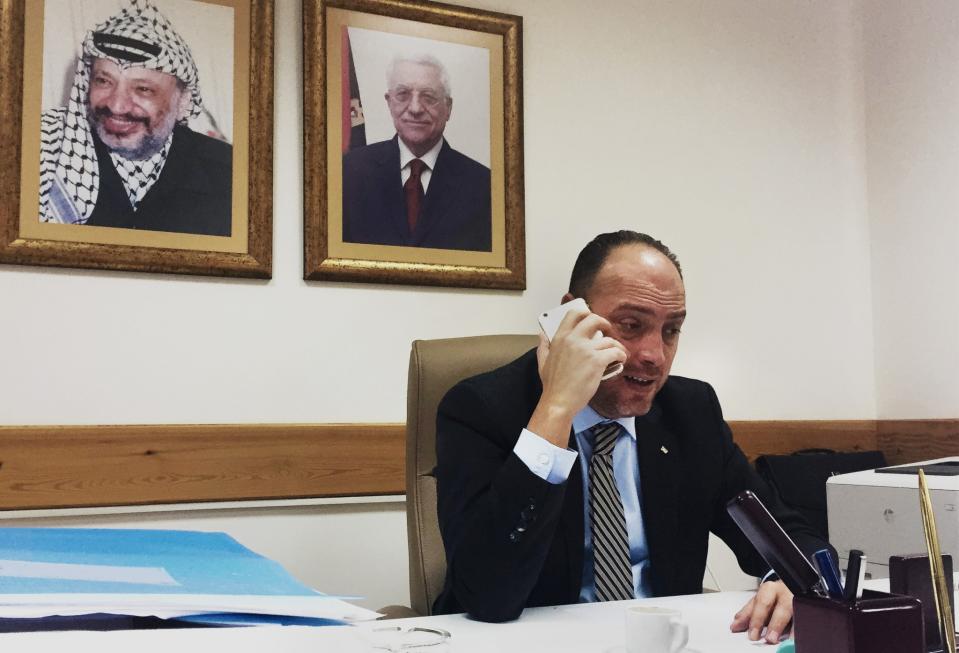Jerusalem or Tel Aviv? What’s at stake in the decision to move the U.S. Embassy
TEL AVIV – Amid conflicting signals from the Trump administration about plans to relocate the United States Embassy from Tel Aviv to Jerusalem, Palestinian officials warn that the move could doom peace talks and end hope for a two-state solution in the region. But the Israeli government, which considers Jerusalem the united capital of the Jewish state, is pushing for the move.
The embassy in Tel Aviv, approximately 45 miles from Jerusalem, is the only American embassy not located in a nation-state’s declared capital city. The United States does not officially recognize Jerusalem as Israel’s capital. Changing that policy would complicate relations with Arab nations and with Palestinians, who still hope to move their future capital to East Jerusalem.
Jerusalem also holds significance for the three major monotheistic religions: Judaism, Christianity and Islam. Palestinians, who include both Muslims and Christians, believe they have both religious and historical claims on the city. If the Trump administration breaks with long-standing American policy and moves the embassy — as Trump promised to do during the campaign — Palestinians believe there will have no hope of being recognized as a nation-state.
How did the embassy end up in Tel Aviv in the first place?

After the United States and the United Nations recognized Israel as a nation-state in May 1948, the United Nations made Jerusalem an international city, recognizing its cultural and religious importance to Muslims, Jews and Christians alike. From 1949 to 1967, the eastern, primarily Palestinian part of the city was under Jordanian control, while Israel held the western part. In the Six-Day War that year, Israel captured and annexed the eastern half, subsequently proclaiming the united city as its undivided capital.
But the international community mostly refused to recognize those claims, and most foreign embassies, including that of the United States, remained in Tel Aviv. In 1995, Congress passed a bill requiring that the embassy move to Jerusalem, but the bill allowed for the move to be delayed through a national security waiver. Every U.S. president since, including Bill Clinton, George W. Bush and Barack Obama, has invoked the waiver.
During negotiations with Palestinians, Israel and the United States, the status of Jerusalem has been a major stumbling block. Over time, the Israeli government has also expanded settlements in East Jerusalem. They are considered illegal under international law and illegitimate under current U.S. policy.
Who supports moving the embassy?
Trump’s nominee for U.S. ambassador to Israel is David Friedman, a bankruptcy lawyer who supports moving the embassy. Friedman is also widely known as a strong supporter of Jewish settlements in the Israeli-occupied West Bank and heads an organization that has provided funding for the settlements.
Reports in the Israeli press suggest that Friedman intends to set up his office in Jerusalem, even before the embassy was officially moved.
However, Prime Minister Benjamin Netanyahu told his Cabinet last week, “Jerusalem is the capital of Israel, and it is proper that not only should the American Embassy be here, but all embassies should come here.”

For now, the U.S. Consulate General in Jerusalem still sits on the dividing line between the east and west of the city.
How is the Palestinian Authority reacting?
Yahoo News spoke with Husam Zomlot, the senior adviser to President Mahmoud Abbas of the Palestinian Authority in Ramallah. He said the Palestinians are looking for “clarity” on what the future of the U.S. policy will be and how they can focus on creating a good deal. “We hope that President Trump is going to divert the discussion from what Mr. Netanyahu might want it to be. Deals are based on a win-win formula; there has to be satisfaction on all sides,” Zomlot said.
Israelis see the embassy moving to Jerusalem as recognition of their Jewish state, under one united country.
But Zomlot says such a move would end any hope for negotiating a two-state solution. “Israel has formally annexed East Jerusalem. So moving the embassy anywhere in the city would be an explicit recognition of Israel’s annexation. Should the embassy be moved, it’s an abandonment; the U.S. has abandoned a two-state solution. ”
He added: “The two-state solution is not a Palestinian demand. The two-state solution is an international demand. Failing the two-state solution is going to be failing the international consensus.”

Zomlot said Palestinians would prefer that there be two U.S. embassies in Jerusalem, one to a Palestinian state and the other to Israel. The Israeli prime minister’s office for foreign media said that “no public comment” would be available on the subject before Netanyahu’s visit to the United States.
But on Friday, local Israeli media reported that Palestinian intelligence officers had pressed the embassy issue during a visit by U.S. security officials. The intelligence officials briefed Abbas and reportedly relieved some of the concerns he had had over the changing U.S. policy.
Meanwhile, as U.S. Embassy officials await Friedman’s confirmation, they will stay right where they are and continue business as usual. The Palestinians are waiting anxiously, wondering if their hopes for their own nation will suffer another setback.
_____
Ash Gallagher is a journalist covering the Middle East for Yahoo News.
Read more from Yahoo News:

